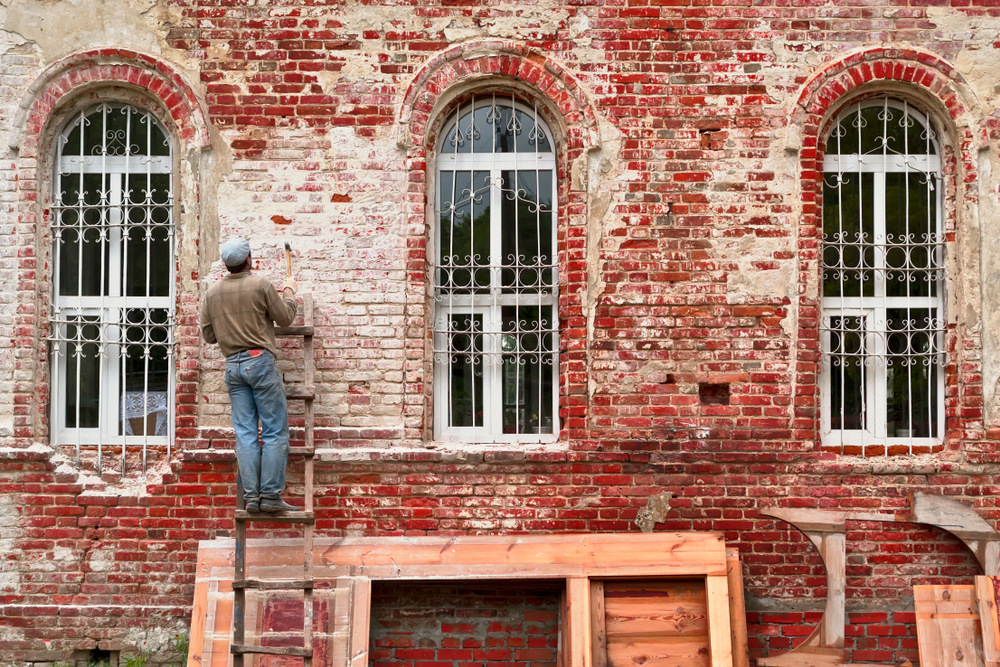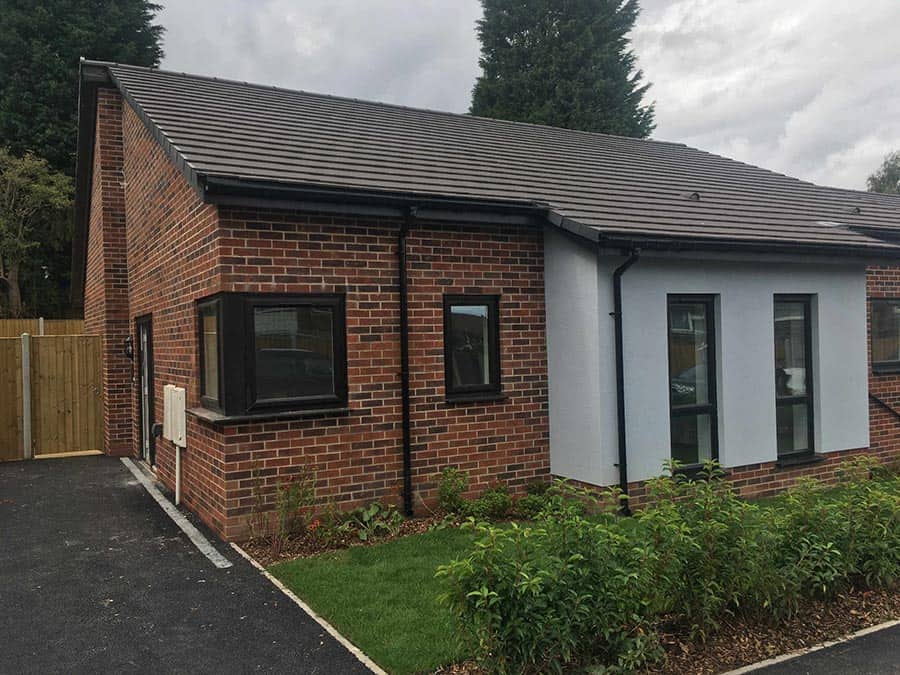The Importance of Heritage Consultants in Restoration Projects

Restoring historic buildings is a complex task that requires a delicate balance between preserving architectural integrity and adapting structures for modern use. Heritage consultants play a crucial role in ensuring that restoration projects comply with conservation regulations while maintaining the historical essence of the property. Without their expertise, projects risk delays, compliance issues, and potential damage to historically significant elements. They provide invaluable knowledge on how to merge past and present architectural approaches, ensuring that restoration efforts do not compromise the building’s cultural and historical value. Their insights help prevent costly mistakes and legal hurdles, making them an essential component of any heritage restoration project. Additionally, their guidance fosters a deeper appreciation for historical architecture, promoting responsible preservation efforts within communities.
What is a Heritage Consultant?
A heritage consultant is a specialist who assesses, advises, and provides strategic planning for the conservation and restoration of historic buildings. Their role is essential in ensuring that heritage sites retain their architectural and cultural significance while adapting to contemporary needs. They work closely with architects, planners, and conservation officers to create restoration plans that respect the original structure while incorporating necessary modern interventions. Their expertise covers:
- Understanding and Interpreting Heritage Legislation: Heritage consultants stay updated on national and local conservation laws, ensuring projects align with the latest regulatory standards. These regulations can vary between regions, with specific protections for listed buildings and conservation areas. Consultants interpret complex planning policies, helping property owners navigate the legal landscape of heritage conservation. They advise on whether Listed Building Consent (LBC) or planning permission is required for proposed works, preventing potential violations that could lead to legal complications. By ensuring compliance from the outset, they help streamline approvals and reduce project delays. Their expertise also extends to advising on grant funding opportunities and tax relief schemes available for heritage restoration projects.
- Conducting Historical Research on Buildings: This involves delving into archives, historical maps, and past modifications to understand the structure’s evolution. Research can uncover hidden architectural details, original building materials, and historical functions that inform the restoration approach. Consultants often liaise with local history societies, libraries, and national heritage organisations to gather accurate documentation. Through detailed analysis, they assess the cultural and architectural value of specific features, such as period fireplaces, decorative cornices, and original brickwork. Understanding the building’s historical context allows for sensitive restoration, ensuring that any alterations enhance rather than diminish its character. Their findings are often compiled into heritage reports that support planning applications and guide conservation efforts.
- Advising on Suitable Materials and Construction Techniques: Heritage consultants recommend materials and craftsmanship that are authentic to the period of the building while incorporating sustainable practices. Traditional materials like lime mortar, hand-made bricks, and timber framing are often specified to match the original construction methods. They assess the feasibility of salvaging and reusing existing materials to maintain authenticity and reduce environmental impact. Consultants also provide guidance on incorporating modern insulation, energy-efficient glazing, and damp-proofing techniques that are sympathetic to historic buildings. Their recommendations help balance conservation with longevity, ensuring that restored structures remain functional and resilient. By working closely with specialist craftspeople, they ensure that traditional skills, such as stone masonry and leadwork, are preserved and applied correctly.
- Preparing Heritage Impact Assessments for Planning Applications: They develop detailed reports outlining how proposed changes will affect the historical character of a building. These assessments are a crucial requirement for planning authorities, demonstrating that a project respects and enhances the heritage value of a site. Heritage consultants evaluate the impact of alterations on key architectural elements, such as facades, rooflines, and internal features. They provide justifications for interventions, explaining why certain changes are necessary while ensuring they align with conservation policies. Their reports often include photographic documentation, architectural drawings, and comparative studies with similar historic properties. A well-prepared heritage impact assessment significantly increases the likelihood of securing planning permission, avoiding costly revisions and delays.
- Liaising with Local Authorities and Conservation Officers: Consultants act as intermediaries, ensuring that planning proposals meet local conservation policies and increasing the likelihood of approval. They engage in early-stage discussions with planning officers to understand specific requirements and expectations for a project. By fostering positive relationships with regulatory bodies, they can negotiate modifications that satisfy both the client’s vision and heritage protections. Consultants may also represent property owners at planning committee meetings, advocating for the project and addressing any concerns raised by stakeholders. Their role includes coordinating with statutory consultees, such as Historic England or local heritage trusts, to gain expert input on complex cases. This proactive approach helps create a smoother approval process and ensures that restorations align with best conservation practices.
- Heritage consultants play a vital role in safeguarding the historical significance of buildings while allowing them to function effectively in the modern era. By maintaining a strong connection to a property’s past, they help preserve cultural heritage for future generations. Their expertise not only enhances the authenticity and longevity of historic buildings but also fosters appreciation for architectural history within communities. Whether working on a Grade II-listed townhouse or a centuries-old thatched cottage, their contributions ensure that these properties remain cherished landmarks. Through a combination of research, advocacy, and technical knowledge, heritage consultants bridge the gap between past and present, making history accessible and sustainable.
Their role is vital in safeguarding the historical significance of buildings while allowing them to function effectively in the modern era. By maintaining a strong connection to a property’s past, heritage consultants help preserve cultural heritage for future generations.
Why Are Heritage Consultants Essential in Restoration Projects?
Ensuring Compliance with Regulations
Restoration projects must adhere to strict planning laws, especially for listed buildings and properties in conservation areas. Heritage consultants help navigate the complexities of Listed Building Consent (LBC) and ensure that proposed works meet regulatory requirements. Their deep understanding of heritage planning policies ensures that applications are well-prepared and have a higher chance of approval. They can also assist in negotiations with planning authorities, advocating for sensitive yet practical restoration solutions. Additionally, they help property owners understand legal obligations and potential restrictions before committing to restoration work, preventing unexpected legal complications. Compliance with conservation laws not only safeguards historical structures but also maintains the property’s market value and reputation.
Preserving Architectural Integrity
Consultants assess the building’s historical features, ensuring that original elements, such as stonework, timber beams, and decorative mouldings, are preserved or accurately restored. Their guidance ensures that any new additions are in keeping with the building’s character. They identify which elements must be retained, which can be replaced, and which need expert restoration to maintain authenticity. By using traditional construction techniques, they help preserve the building’s historic charm while reinforcing its structural integrity. Heritage consultants also advise on how to sensitively integrate modern materials without disrupting the original aesthetic. This careful approach ensures that restoration work complements the property rather than detracts from its significance.
Guiding Material and Method Selection
Using inappropriate materials can lead to structural damage and regulatory issues. Heritage consultants recommend historically accurate materials and techniques that align with conservation principles while enhancing sustainability and longevity. They provide specifications for materials such as lime mortar, reclaimed bricks, or traditional timber, ensuring compatibility with the original structure. They also assess whether modern technologies, such as breathable insulation or non-invasive damp-proofing, can be incorporated without harming the building. Their input helps ensure that restorations last for generations, preventing the need for future costly repairs due to material incompatibility. By promoting sustainable restoration methods, they contribute to environmentally responsible conservation efforts.
Supporting Planning Applications
A well-prepared planning application increases the likelihood of gaining approval. Heritage consultants provide essential documents, such as Heritage Impact Assessments (HIAs) and Design and Access Statements (DAS), which demonstrate that the project aligns with conservation policies. They also gather supporting evidence, including historical research and photographic documentation, to strengthen the case for proposed changes. Their detailed justifications help planning officers understand how the project will respect the property’s historical significance while meeting modern requirements. By anticipating potential objections, they can proactively address concerns before submitting an application. Their expertise streamlines the approval process, saving homeowners time and reducing the risk of rejection.
Balancing Conservation with Modernisation
Restoring historic buildings often involves integrating modern amenities while preserving heritage value. Heritage consultants advise on how to introduce energy-efficient solutions, such as secondary glazing and breathable insulation, without compromising the building’s character. They help property owners navigate challenges such as retrofitting heating systems while maintaining period aesthetics. Consultants also recommend sustainable energy solutions that align with conservation guidelines, such as solar panels positioned to minimise visual impact. By balancing functionality and heritage preservation, they ensure that buildings remain comfortable, practical, and legally compliant. Their approach helps future-proof heritage properties while respecting their original design.
How Loomin Enhances the Heritage Restoration Process
Navigating heritage restoration requires the right expertise. Loomin simplifies the process by connecting homeowners with fixed-fee, Qualified architects who specialise in heritage projects.
Finding the Right Heritage Specialist
Loomin’s marketplace allows homeowners to compare fixed-fee quotes from Qualified architects experienced in working with heritage properties. These architects understand the complexities of conservation regulations and can provide tailored guidance for each project. Homeowners can browse profiles, assess past projects, and select an expert who aligns with their vision and budget. The platform ensures that every listed architect has the qualifications and experience necessary to handle heritage-specific challenges.
Seamless Project Management
Loomin’s SaaS-enabled platform provides tools to streamline the restoration process, including:
- Virtual meetings and design reviews – Homeowners can collaborate with architects remotely, reviewing plans and making real-time adjustments.
- Scheduling tools for architect consultations – Booking consultations and site visits is simplified, reducing project delays.
- Secure document storage for planning applications – All essential paperwork, from blueprints to planning applications, is stored securely online.
- Chat features for real-time communication – Homeowners and architects can maintain seamless communication throughout the project.
- Payment processing for secure transactions – Fixed-fee pricing and secure payments eliminate financial uncertainties.
Ensuring Compliance and Approval
Heritage architects on Loomin’s platform understand the intricacies of Listed Building Consent and local conservation policies, ensuring smoother planning approvals. They guide homeowners through application processes, reducing the risk of delays. By proactively addressing potential planning concerns, they improve approval success rates. Their expertise ensures that restorations align with both heritage standards and homeowner preferences.
Matching with the Right Contractors
Once approvals are secured, selecting the right contractor is vital. Loomin provides like-for-like contractor matching, ensuring that experienced specialists carry out the restoration work. These contractors are vetted for their expertise in heritage projects, ensuring high-quality craftsmanship. This service simplifies the hiring process, providing homeowners with confidence that their restoration will be completed to the highest standards.
Conclusion
Heritage consultants are an indispensable part of any restoration project, providing expert guidance on compliance, materials, and historical accuracy. Their involvement ensures that historic buildings are preserved for future generations while meeting modern needs. By working with knowledgeable consultants, homeowners can ensure that restoration efforts are both legally compliant and aesthetically faithful to the building’s original character. Beyond securing planning approvals, heritage consultants help property owners avoid costly mistakes that could damage the structure’s historical integrity or result in regulatory penalties. Their expertise ensures that conservation projects strike the right balance between preservation and practicality, allowing historic buildings to remain functional and relevant in today’s world.
With Loomin, homeowners gain access to fixed-fee, Qualified architects, project management tools, and contractor-matching services, making heritage restoration projects more transparent, efficient, and successful. By streamlining the process, Loomin eliminates many of the common frustrations associated with heritage projects, from finding qualified professionals to managing planning applications. Homeowners can confidently move forward with restorations, knowing they have expert guidance at every stage. Whether restoring a listed manor or revitalising a historic townhouse, Loomin provides the expertise and support needed to bring heritage properties back to life while preserving their unique historical significance. Through its innovative platform, Loomin empowers homeowners to protect and enhance their heritage assets, ensuring they remain a cherished part of the architectural landscape for generations to come.
.png)


